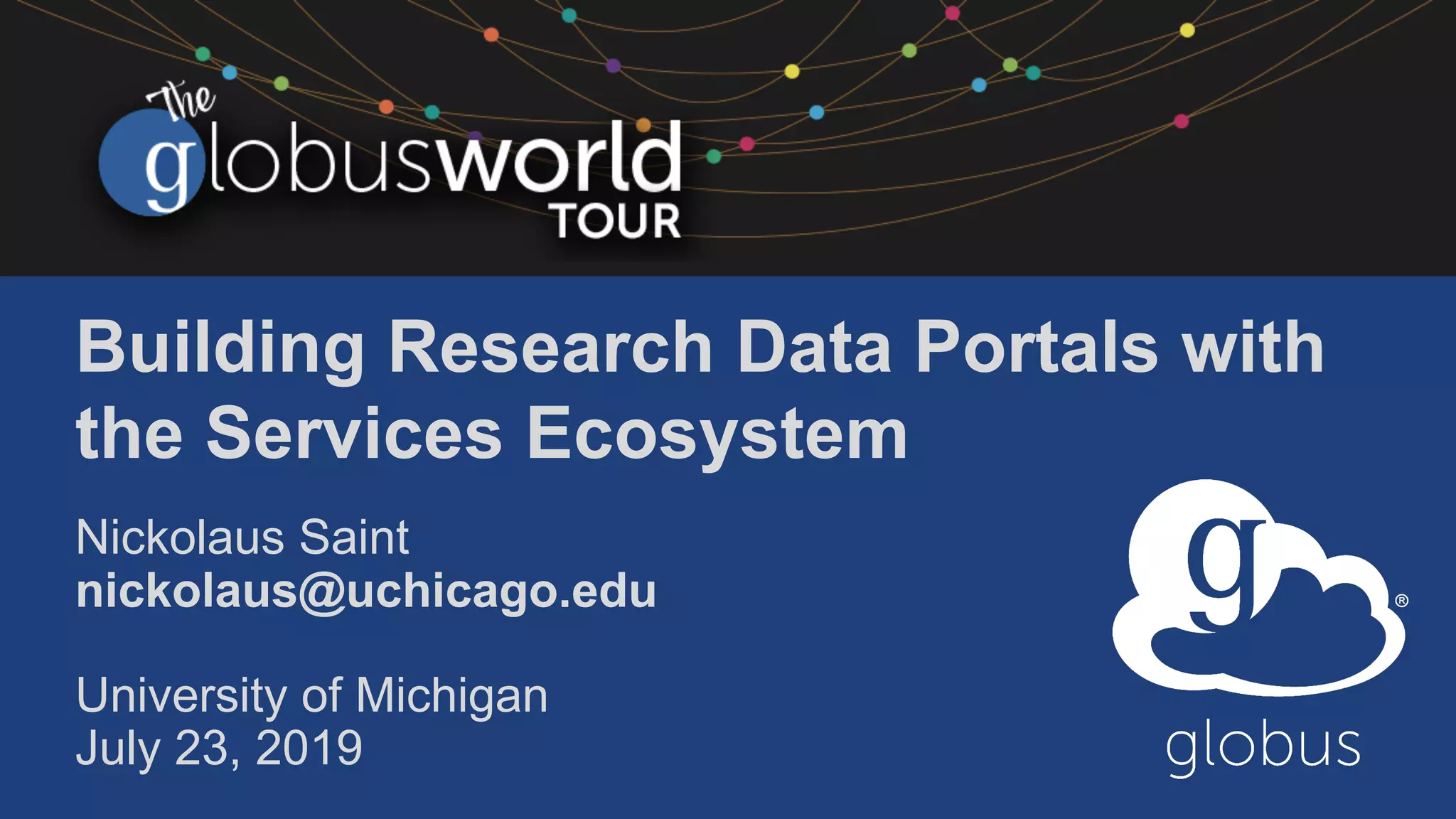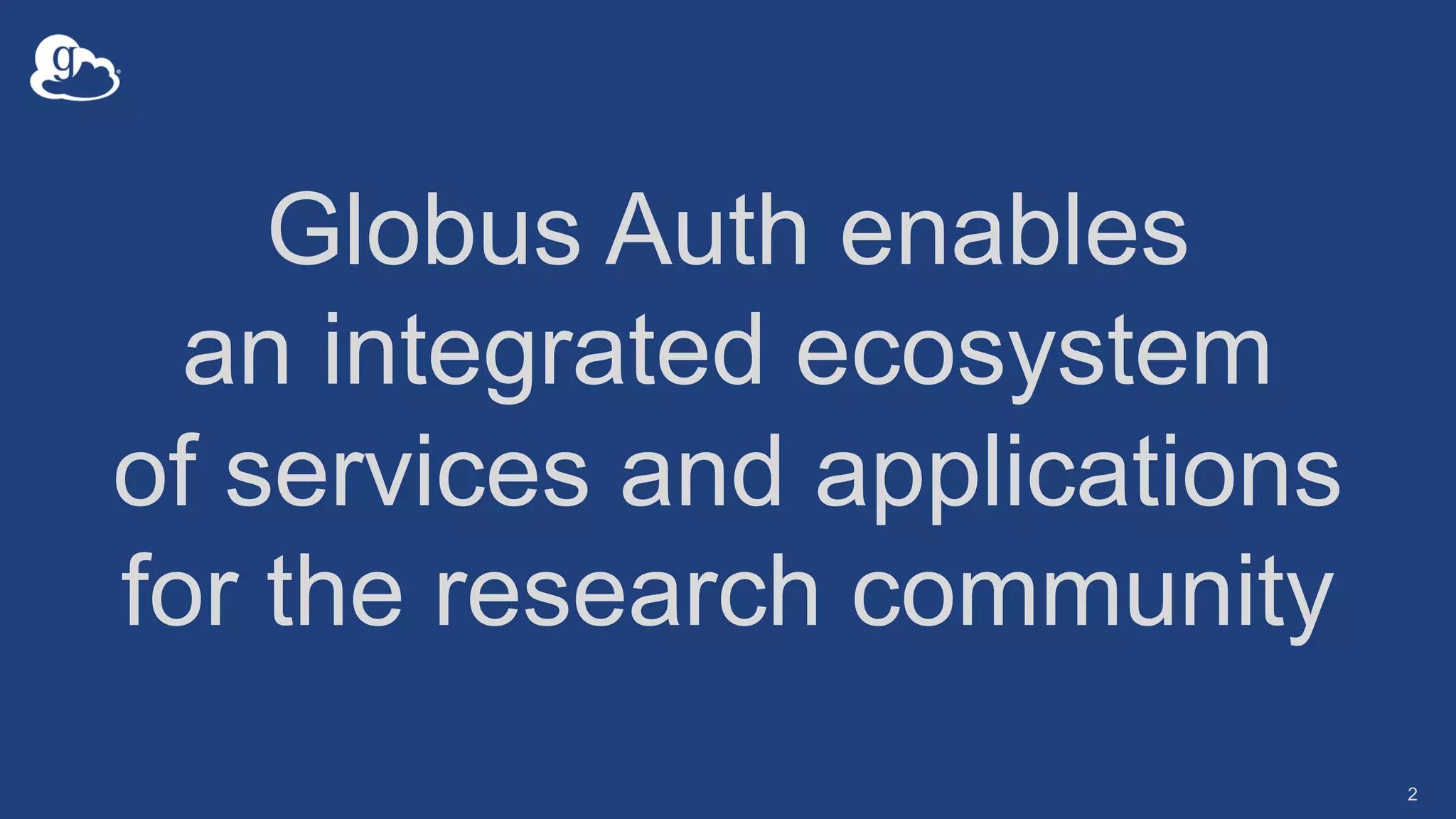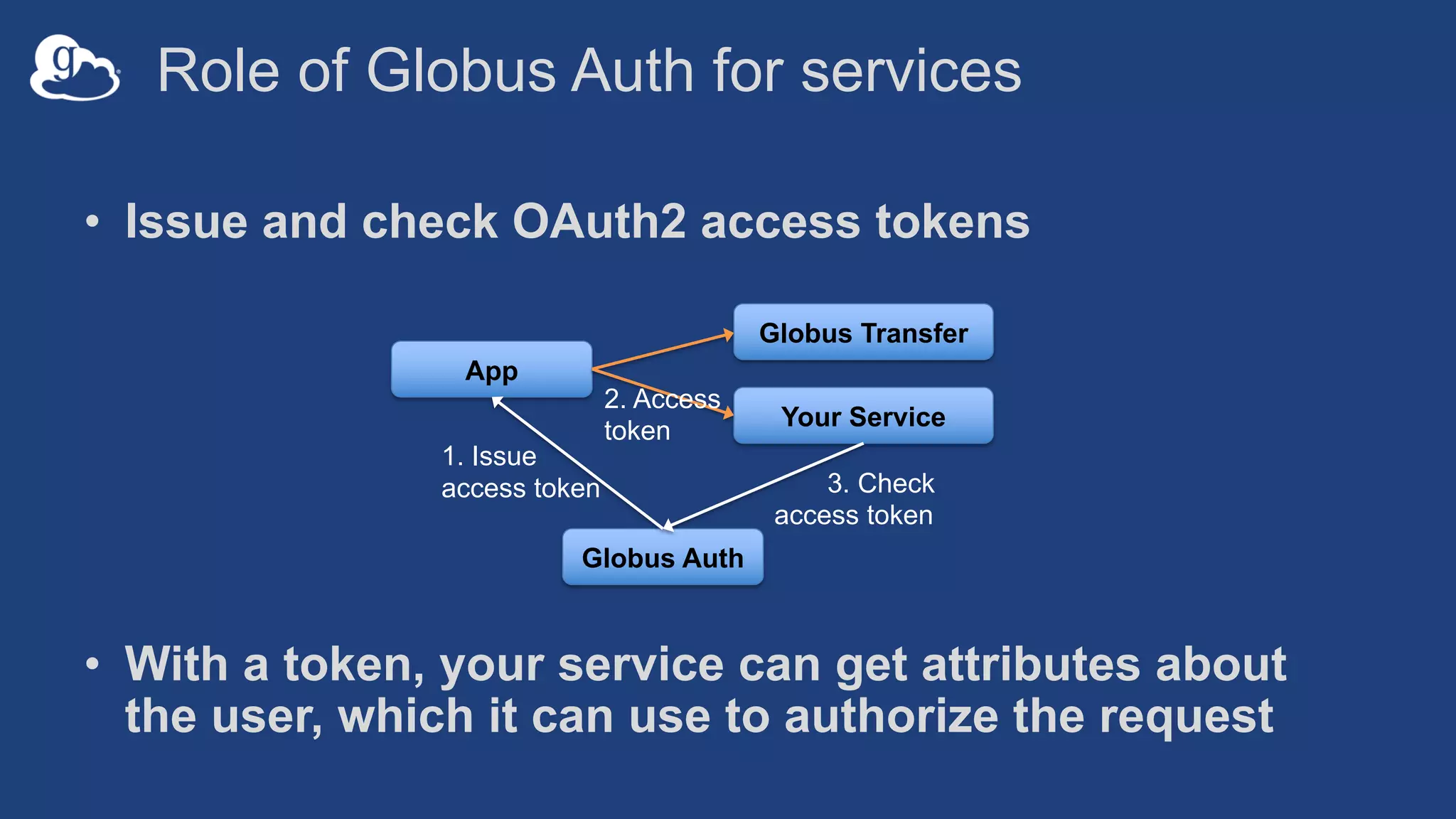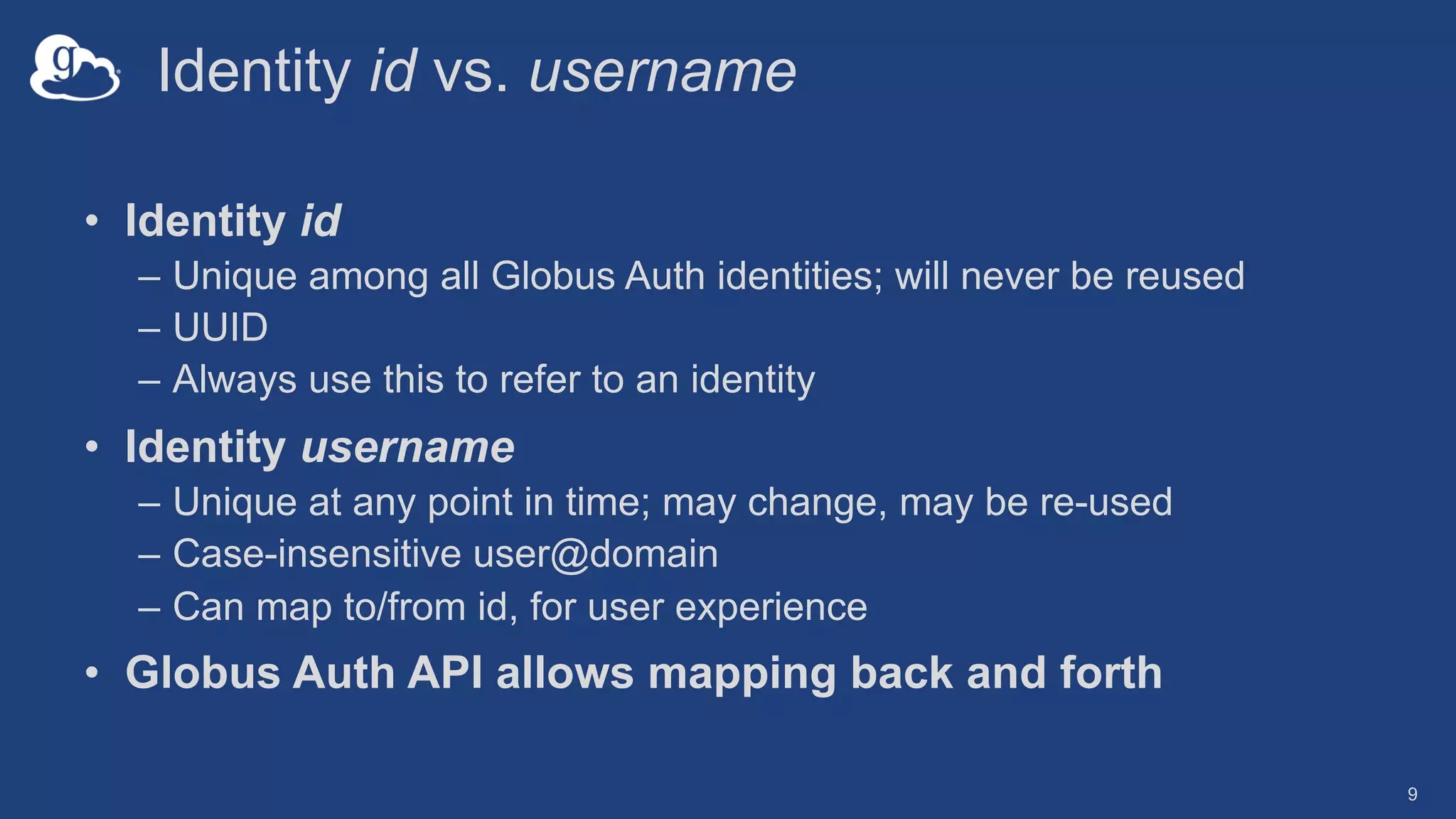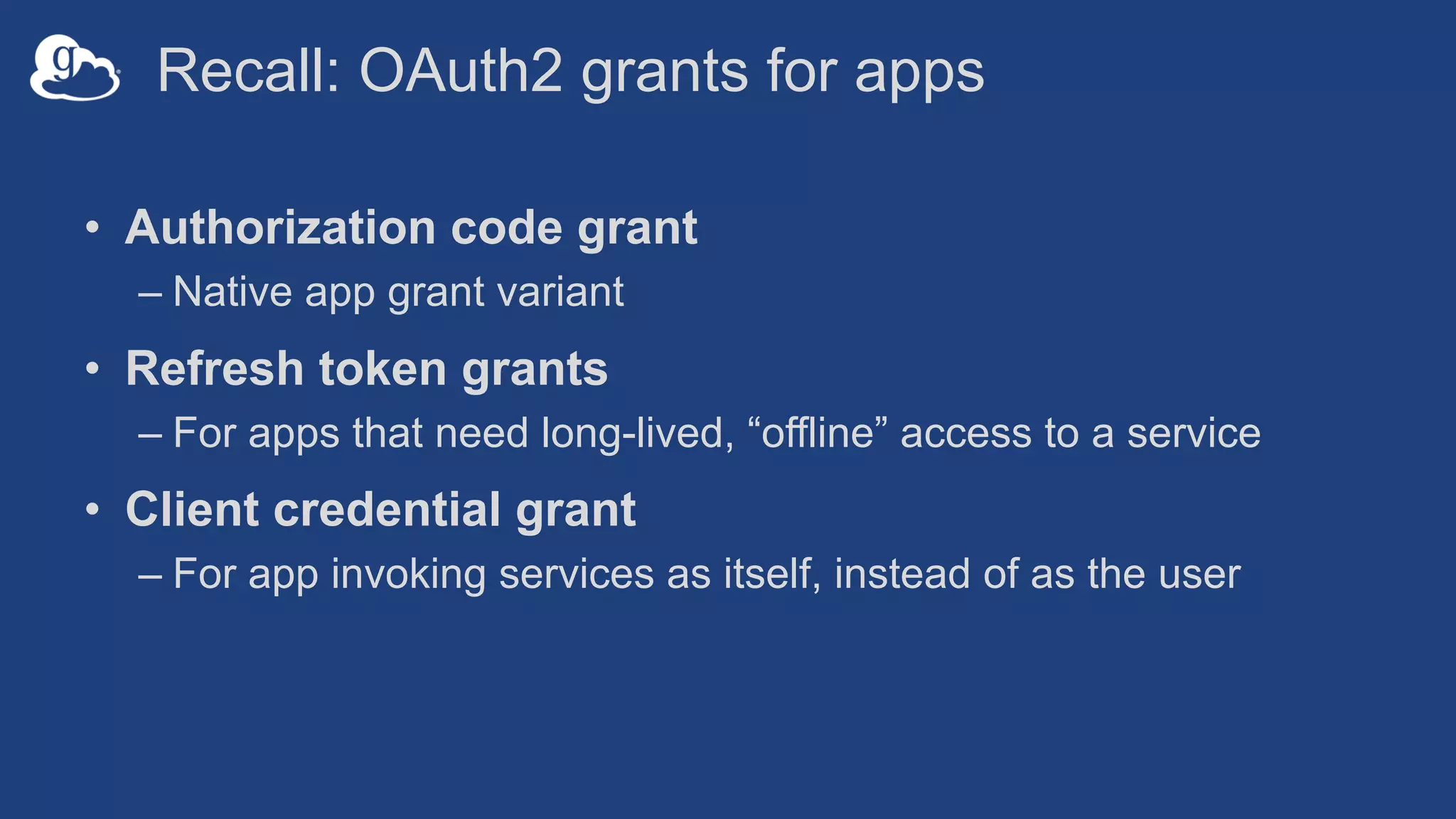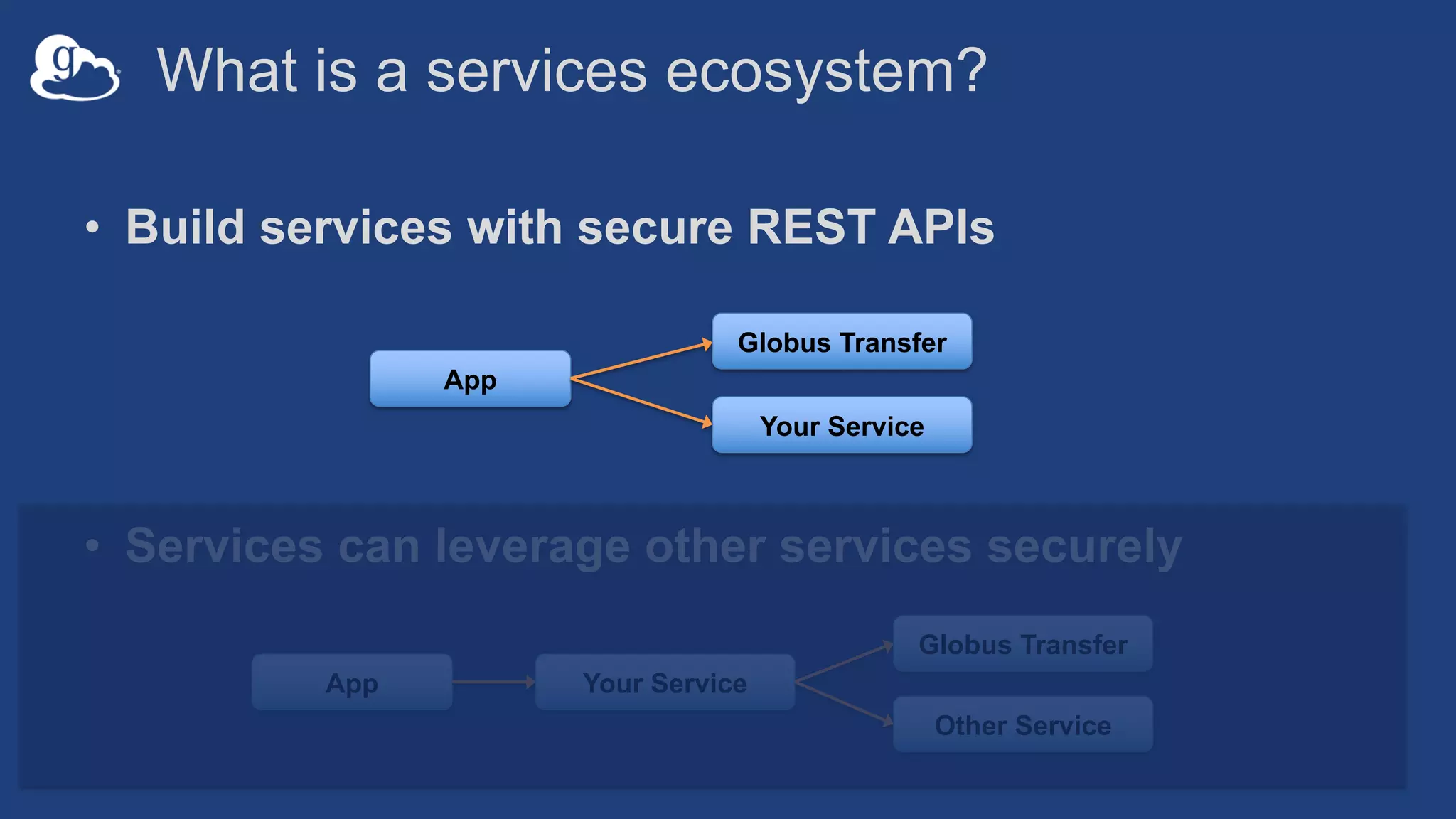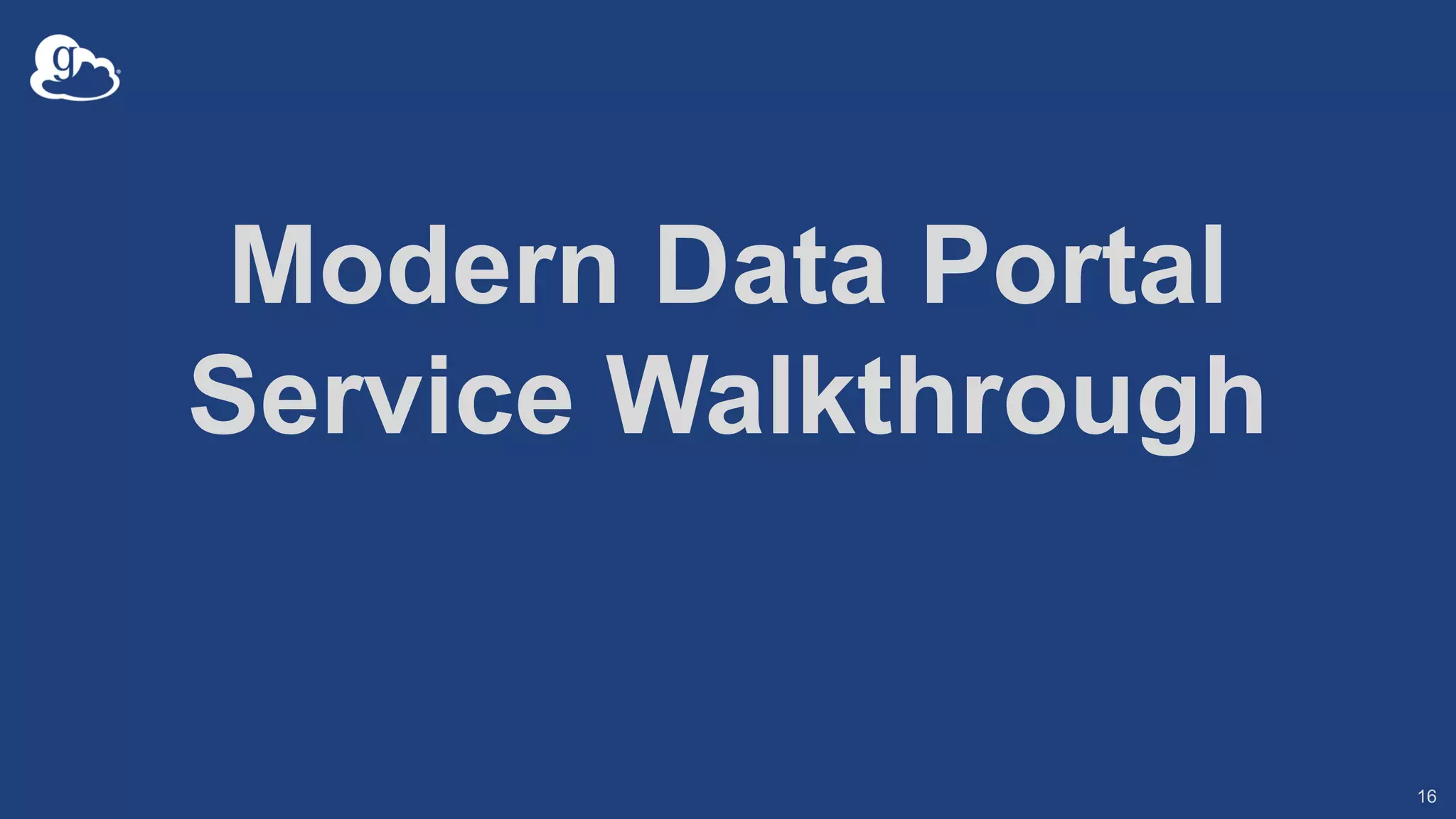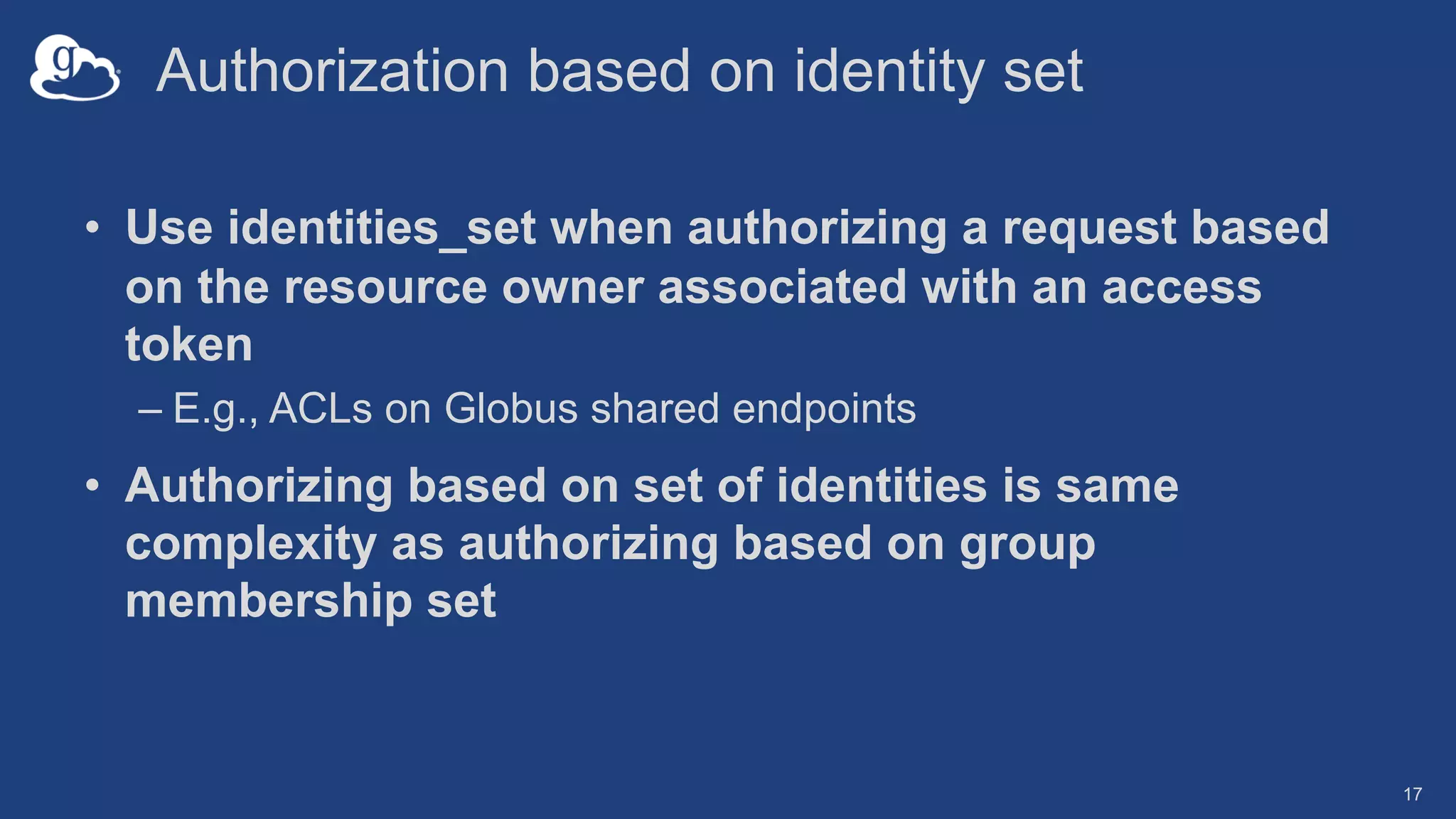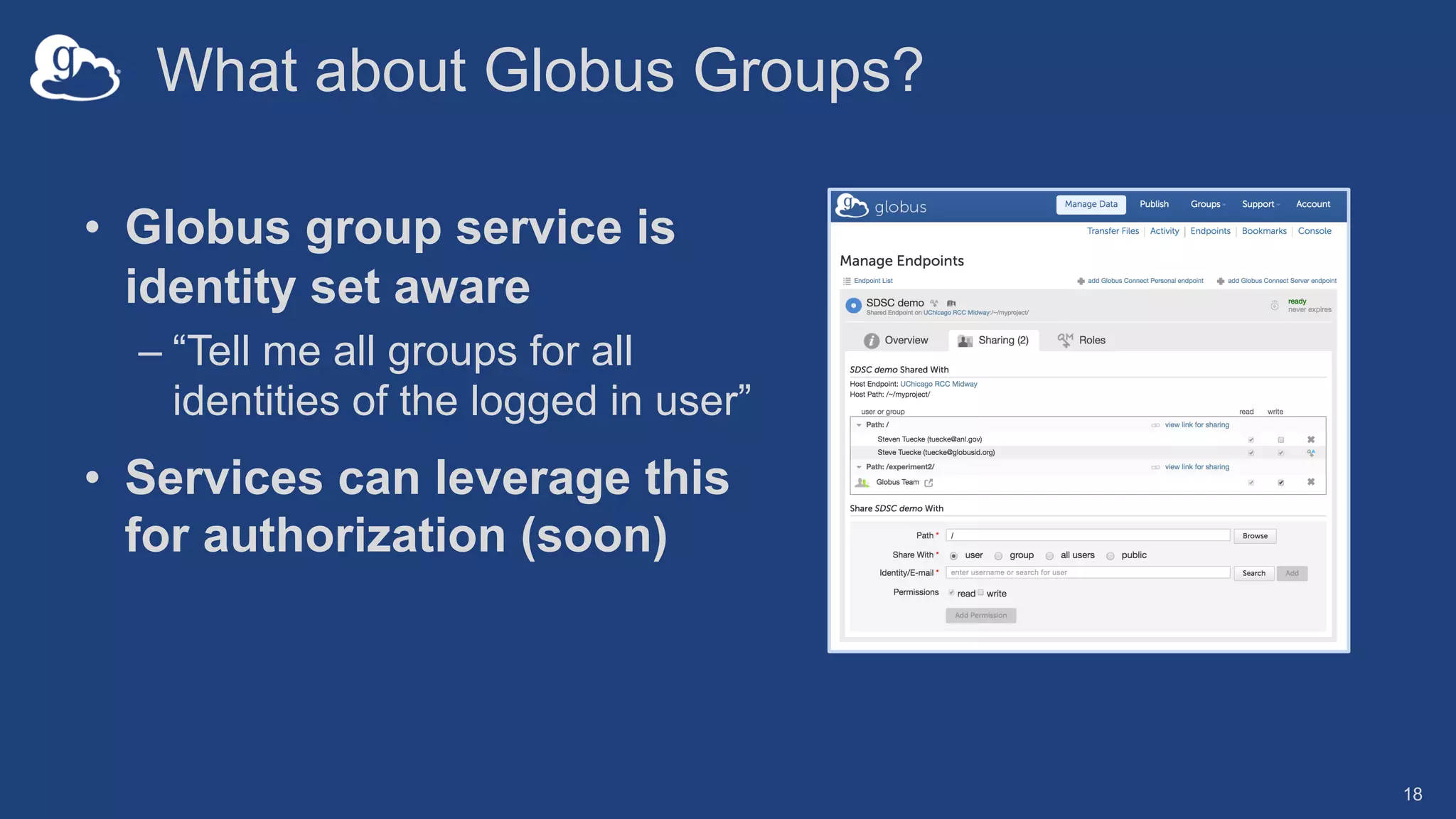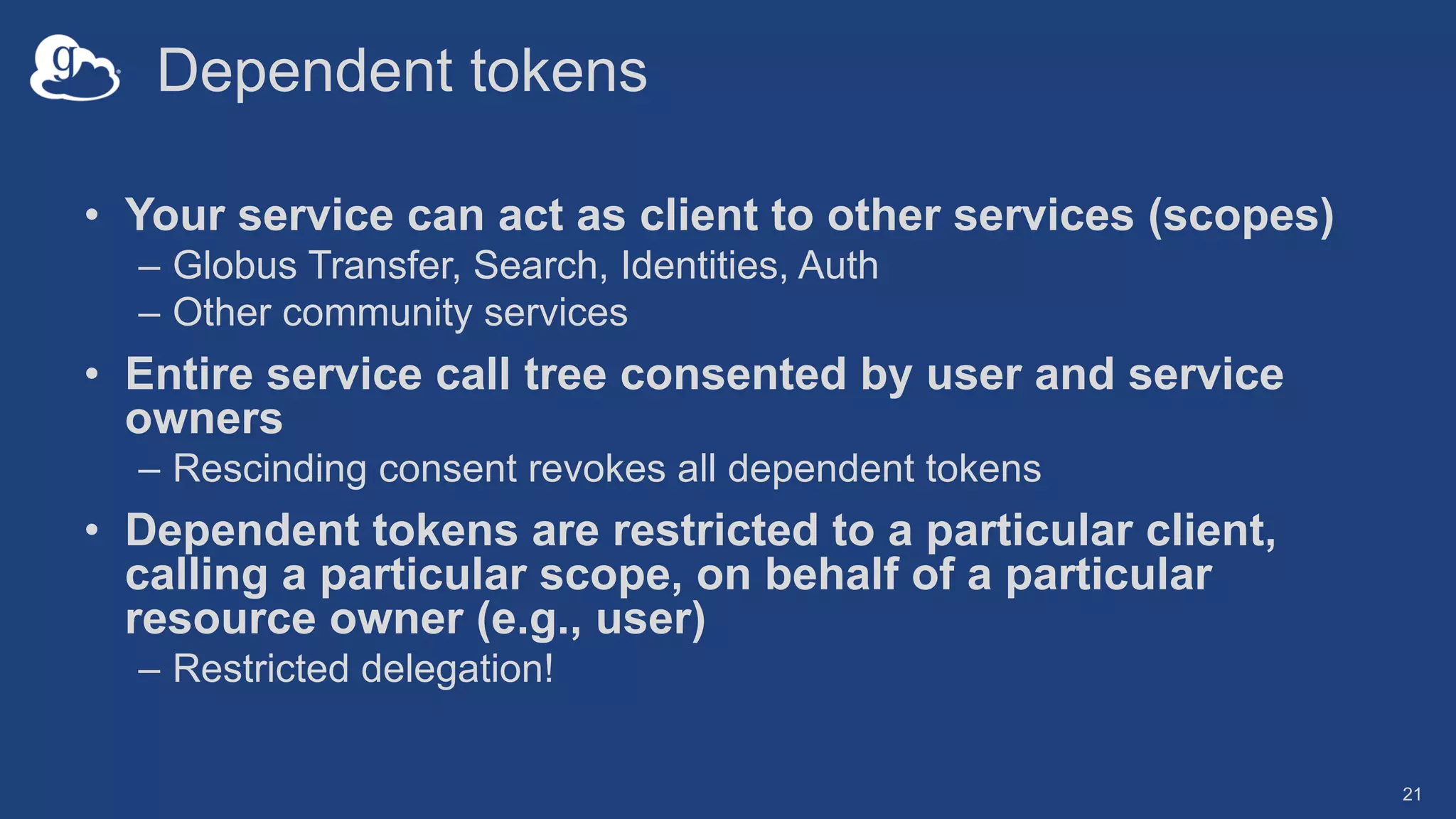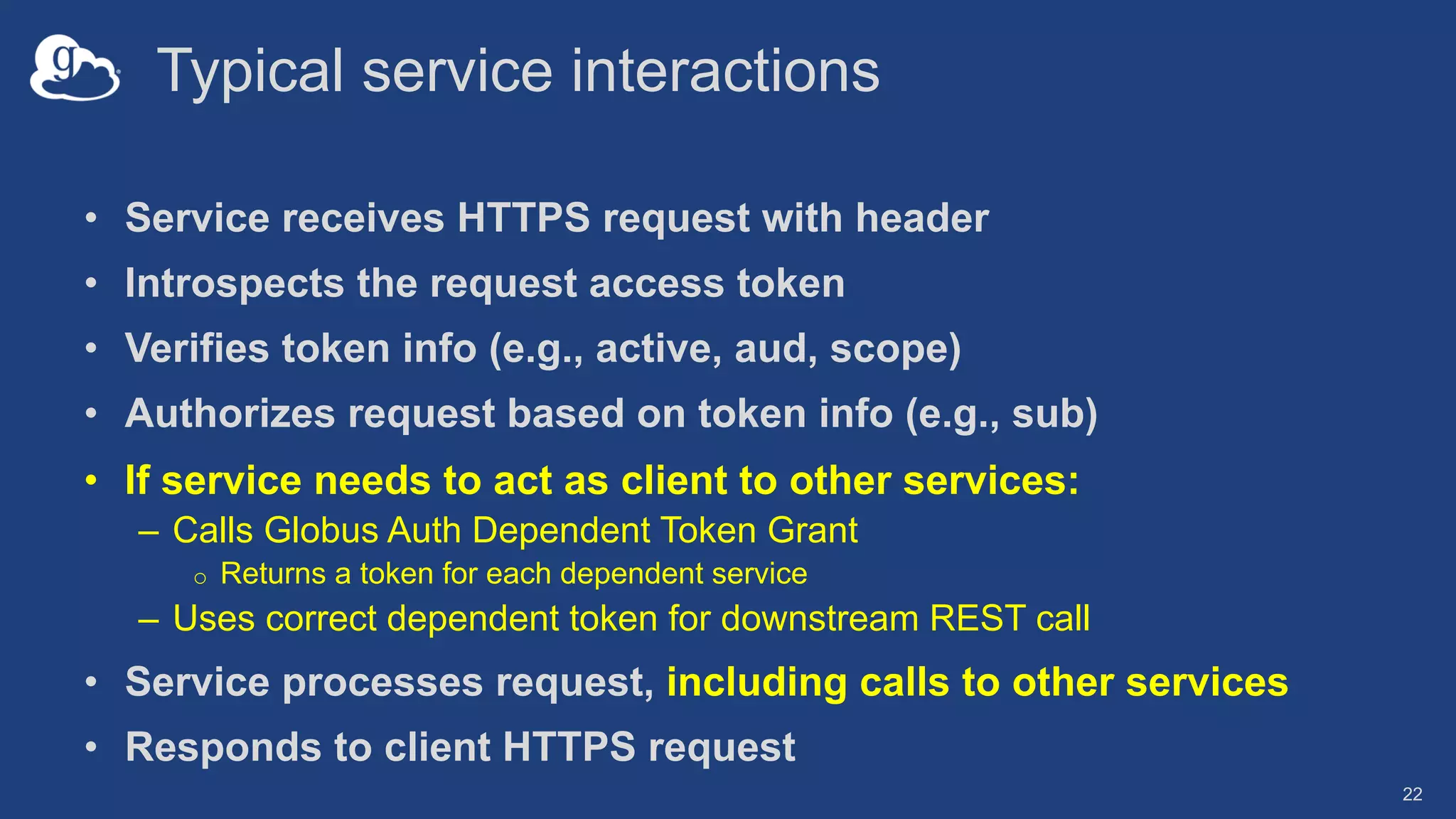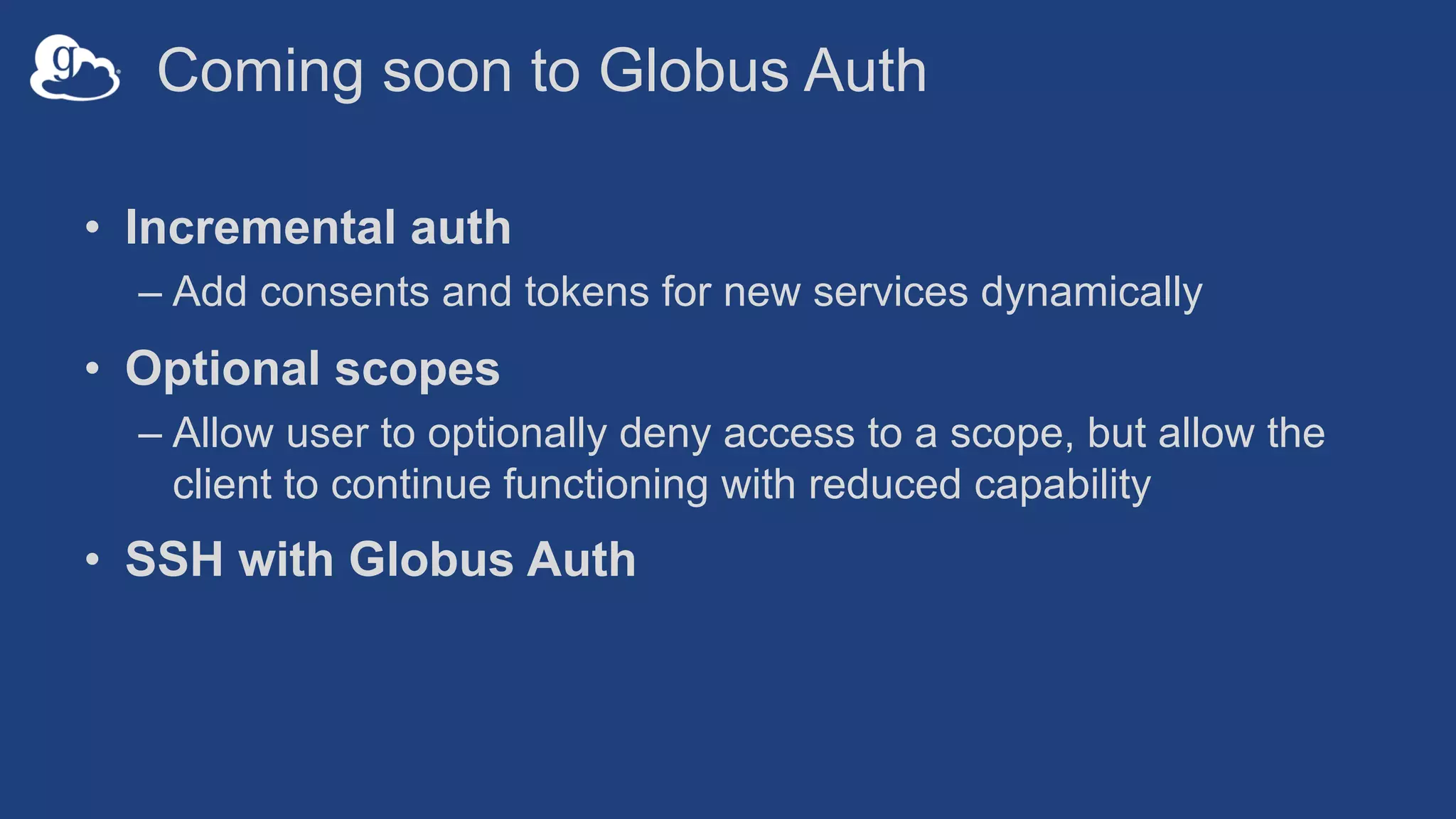Globus Auth enables the creation of a services ecosystem by allowing services to securely leverage other services through REST APIs. It handles authentication and authorization for services, issuing access tokens that services can use to make requests to dependent services on behalf of a user. This allows users' identities and authorizations to propagate throughout the entire services call tree. Services can also cache tokens to improve performance when making downstream requests to dependent services.
